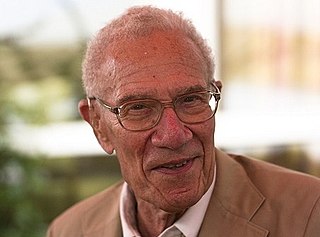
Robert Merton Solow, GCIH is an American economist whose work on the theory of economic growth culminated in the exogenous growth model named after him. He is currently Emeritus Institute Professor of Economics at the Massachusetts Institute of Technology, where he has been a professor since 1949. He was awarded the John Bates Clark Medal in 1961, the Nobel Memorial Prize in Economic Sciences in 1987, and the Presidential Medal of Freedom in 2014. Four of his PhD students, George Akerlof, Joseph Stiglitz, Peter Diamond and William Nordhaus, later received Nobel Memorial Prizes in Economic Sciences in their own right.
Tampere University of Technology (TUT) was Finland's second-largest university in engineering sciences. The university was located in Hervanta, a suburb of Tampere. It was merged with the University of Tampere to create the new Tampere University on 1 January 2019.

Sir James Alexander Mirrlees was a British economist and winner of the 1996 Nobel Memorial Prize in Economic Sciences. He was knighted in the 1997 Birthday Honours.

Edward Christian Prescott was an American economist. He received the Nobel Memorial Prize in Economics in 2004, sharing the award with Finn E. Kydland, "for their contributions to dynamic macroeconomics: the time consistency of economic policy and the driving forces behind business cycles". This research was primarily conducted while both Kydland and Prescott were affiliated with the Graduate School of Industrial Administration at Carnegie Mellon University. According to the IDEAS/RePEc rankings, he was the 19th most widely cited economist in the world in 2013. In August 2014, Prescott was appointed an Adjunct Distinguished Economic Professor at the Australian National University (ANU) in Canberra, Australia. Prescott died of cancer on November 6, 2022, at the age of 81.
Robert JamesGordon is an American economist. He is the Stanley G. Harris Professor of the Social Sciences at Northwestern University. Gordon is one of the world’s leading experts on inflation, unemployment, and long-term economic growth. His recent work asking whether economic growth in the US is “almost over” has been widely cited, and in 2016, he was named one of the 50 most influential people in the world by Bloomberg.

Richard Barry Freeman is an economist. The Herbert Ascherman Professor of Economics at Harvard University and Co-Director of the Labor and Worklife Program at Harvard Law School, Freeman is also Senior Research Fellow on Labour Markets at the Centre for Economic Performance, part of the London School of Economics, funded by the Economic and Social Research Council, the UK's public body funding social science. Freeman directs the Science and Engineering Workforce Project (SEWP) at the National Bureau of Economic Research (NBER), a network focused on the economics of science, technical, engineering, and IT labor which has received major long-term support from the Sloan Foundation.
General-purpose technologies (GPTs) are technologies that can affect an entire economy. GPTs have the potential to drastically alter societies through their impact on pre-existing economic and social structures. The archetypal examples of GPTs are the steam engine, electricity, and information technology. Other examples include the railroad, interchangeable parts, electronics, material handling, mechanization, control theory (automation), the automobile, the computer, the Internet, medicine, and artificial intelligence, in particular generative pre-trained transformers.
Yrjö O. Vartia is the professor of econometrics in the Department of Political and Economic Studies at the University of Helsinki, Finland.

Tampere University is a Finnish university that was established on 1 January, 2019 as a merger between the University of Tampere and Tampere University of Technology. The new university is also the major shareholder of Tampere University of Applied Sciences.

Bengt Robert Holmström is a Finnish economist who is currently Paul A. Samuelson Professor of Economics (Emeritus) at the Massachusetts Institute of Technology. Together with Oliver Hart, he received the Central Bank of Sweden Nobel Memorial Prize in Economic Sciences in 2016.
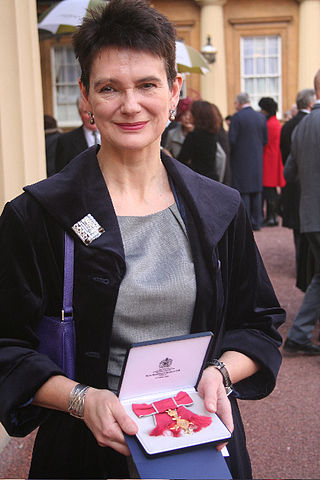
Dame Diane Coyle is a British economist, academic and writer. Since March 2018, she has been the Bennett Professor of Public Policy at the University of Cambridge, co-directing the Bennett Institute.
Erik Filip Lundberg was a Swedish economist, born in Stockholm. He was a professor of political economics at Stockholm University and a member of the Stockholm School of economic thought. He was president of the International Economic Association from 1968 to 1971. From 1969 to 1979, he was a member of the committee that selects the laureates for the Sveriges Riksbank Prize in Economic Sciences, the Economics Prize Committee, and served as the committee's chairman from 1975 to 1979.

The United Nations University World Institute for Development Economics Research (UNU-WIDER) is part of the United Nations University (UNU). UNU-WIDER, the first research and training centre to be established by the UNU, is an international academic organization set up with the aim of promoting peace and progress by bringing together leading scholars from around the world to tackle pressing global problems.

Frank Horace Hahn FBA was a British economist whose work focused on general equilibrium theory, monetary theory, Keynesian economics and critique of monetarism. A famous problem of economic theory, the conditions under which money, which is intrinsically worthless, can have a positive value in a general equilibrium, is called "Hahn's problem" after him. One of Hahn's main abiding concerns was the understanding of Keynesian (Non-Walrasian) outcomes in general equilibrium situations.
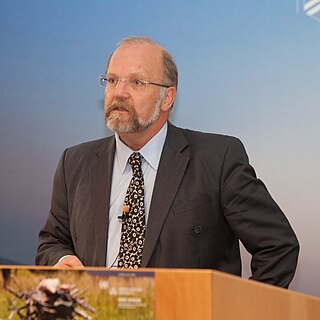
Finn Tarp is a Danish professor of development economics at the University of Copenhagen and former director of UNU-WIDER (2009-2018), Helsinki, Finland.
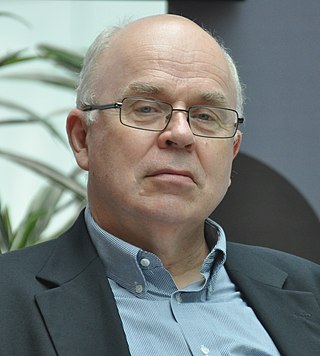
Seppo Mikko Sakari Honkapohja is a Finnish economist. He is a board member of the Bank of Finland and former Professor of International Macroeconomics of the University of Cambridge.
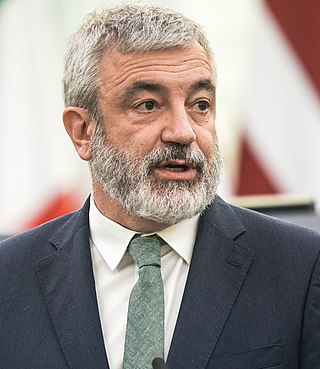
Luis Garicano Gabilondo is a Spanish economist and politician who was a Member of the European Parliament (MEP) from 2019 to 2022. He was also vice president of Renew Europe and vice president of the European political party Alliance of Liberals and Democrats for Europe. Before entering politics, he was a professor of strategy and economics at IE Business School in Madrid and at the London School of Economics (LSE). After leaving the European Parliament he has returned to academia as a visiting professor at Columbia Business School and at the University of Chicago Booth School of Business. An overview of his work can be found here.

Richard E. Baldwin is a professor of international economics at the IMD Business School. He was the former President of the Centre for Economic Policy Research (CEPR). He is Editor-in-Chief of VoxEU, which he founded in June 2007. He is a research associate at the National Bureau of Economic Research and was twice elected as a Member of the Council of the European Economic Association. Baldwin has been called "one of the most important thinkers in this era of global disruption".
Joseph Zeira is an Israeli economist. His main work is in macroeconomics, in economic growth and in the economy of Israel. He is the Aaron and Michael Chilewich Professor of Economics at the Hebrew University of Jerusalem.
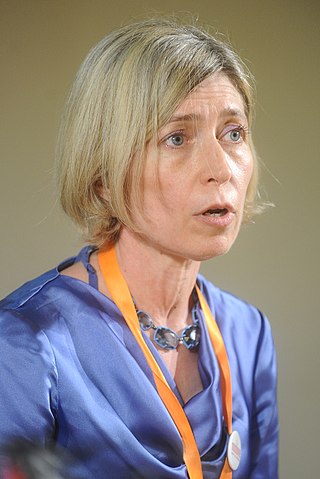
Oriana Bandiera, FBA is an Italian economist and academic, specialising in development economics. She has been Professor of Economics at the London School of Economics since 2009. She is currently the Sir Anthony Atkinson Professor of Economics at the London School of Economics, and co-editor of Econometrica. Her area of study primarily concerns organizations and labor markets, and their relationship with the process of economic development.














